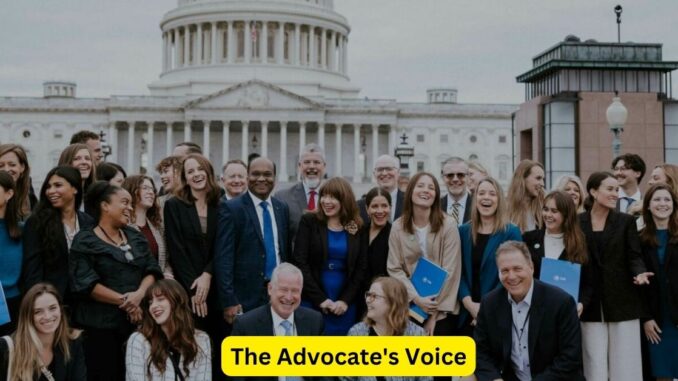
In the intricate tapestry of society, the advocate’s voice resonates as a powerful instrument of change and justice. Lawyers, as advocates, carry the weighty responsibility of speaking up for those who cannot speak for themselves, challenging injustices, and ensuring that the rule of law prevails. This role is not merely a professional obligation but a moral calling, rooted in the profound commitment to justice, equity, and the protection of human rights.
The essence of advocacy lies in the ability to articulate and champion the causes of those who are marginalized or wronged. Advocates stand at the forefront of the legal battlefields, wielding their voices as their primary weapon. This involves more than just arguing cases in court; it requires a deep understanding of the law, meticulous preparation, and the ability to craft compelling narratives that resonate with judges, juries, and the public.
One of the most critical aspects of an advocate’s role is to ensure access to justice for all. In a world where legal knowledge and resources are often unequally distributed, advocates play a vital role in bridging this gap. They provide legal representation to those who might otherwise be voiceless—victims of discrimination, the economically disadvantaged, and those facing systemic injustices. Through pro bono work and public interest law, advocates ensure that legal protections extend to every corner of society, affirming the principle that justice should not be a privilege of the few but a right of all.
The advocate’s voice is also instrumental in challenging and changing unjust laws and policies. Throughout history, lawyers have been at the heart of social movements, using their skills to fight for civil rights, environmental protections, and more. They draft impactful legislation, litigate precedent-setting cases, and engage in public discourse to shape public policy. This advocacy is crucial in creating a legal framework that evolves with societal values and protects the rights and freedoms of all individuals.
Moreover, effective advocacy requires a blend of legal acumen and emotional intelligence. Lawyers must not only present logical arguments but also connect with the human elements of each case. Understanding the emotions, values, and perspectives of both clients and the audience can significantly enhance the persuasiveness of an argument. Empathy and compassion are thus essential qualities for any advocate, enabling them to genuinely represent and resonate with those they defend.
In the courtroom, the advocate’s voice serves as a beacon of hope and justice. Whether defending the innocent, prosecuting the guilty, or representing a party in a civil dispute, lawyers ensure that the legal process operates fairly and justly. Their work helps maintain public confidence in the legal system and upholds the foundational principles of democracy.
Beyond the courtroom, advocates engage in community education, raising awareness about legal rights and issues. They write articles, participate in public speaking engagements, and use media platforms to inform and educate the public. This aspect of advocacy is crucial in empowering individuals with the knowledge they need to navigate the legal system and protect their rights.
In conclusion, the advocate’s voice is a vital force in the pursuit of justice. By speaking up for the vulnerable, challenging injustices, and shaping equitable laws, lawyers fulfill their profound responsibility to society. Their work ensures that the principles of justice, fairness, and equality remain at the heart of our legal system, fostering a society where every voice can be heard and every right can be protected.

Leave a Reply